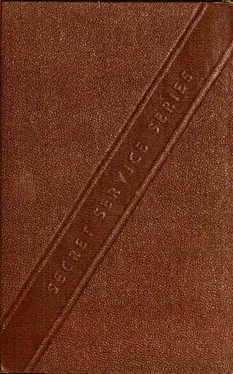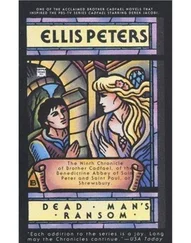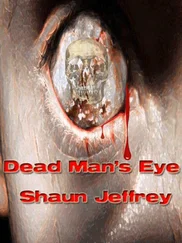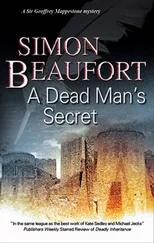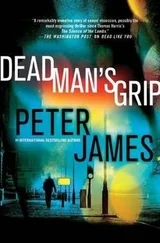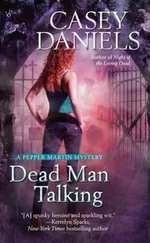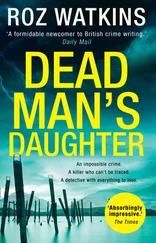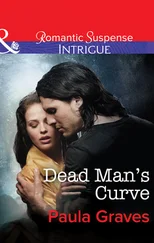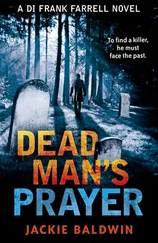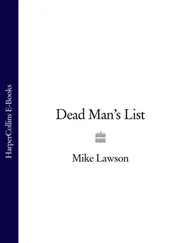Valentine Williams - Dead Man Manor
Здесь есть возможность читать онлайн «Valentine Williams - Dead Man Manor» — ознакомительный отрывок электронной книги совершенно бесплатно, а после прочтения отрывка купить полную версию. В некоторых случаях можно слушать аудио, скачать через торрент в формате fb2 и присутствует краткое содержание. Жанр: unrecognised, на английском языке. Описание произведения, (предисловие) а так же отзывы посетителей доступны на портале библиотеки ЛибКат.
- Название:Dead Man Manor
- Автор:
- Жанр:
- Год:неизвестен
- ISBN:нет данных
- Рейтинг книги:3 / 5. Голосов: 1
-
Избранное:Добавить в избранное
- Отзывы:
-
Ваша оценка:
- 60
- 1
- 2
- 3
- 4
- 5
Dead Man Manor: краткое содержание, описание и аннотация
Предлагаем к чтению аннотацию, описание, краткое содержание или предисловие (зависит от того, что написал сам автор книги «Dead Man Manor»). Если вы не нашли необходимую информацию о книге — напишите в комментариях, мы постараемся отыскать её.
Dead Man Manor — читать онлайн ознакомительный отрывок
Ниже представлен текст книги, разбитый по страницам. Система сохранения места последней прочитанной страницы, позволяет с удобством читать онлайн бесплатно книгу «Dead Man Manor», без необходимости каждый раз заново искать на чём Вы остановились. Поставьте закладку, и сможете в любой момент перейти на страницу, на которой закончили чтение.
Интервал:
Закладка:
CHAPTER V
Mr. Treadgold made his way to his hut in a sobered mood. That face in the tree dwelt unpleasantly in his memory. He was a modern-minded man, but still under the influence of that sombre house, sunk in the silence of slow decay, he found himself thinking of the face he had seen as the incarnation of the evil spirit reputedly haunting the Manor. But then his collector’s enthusiasm came to his rescue. With a delicious thrill he remembered the parcel of stamps in his pocket. He would sit down forthwith with lens and catalogue, he promised himself, and examine his treasure-trove.
But on reaching the log cabin his hopes were dashed by the discovery that it already had an occupant. A hot and dusty young man stood there, gazing about him with every evidence of frank approval. With its grass-green curtains and matting, its furniture and walls of unstained pine, and its big open fireplace, the hut was very attractive, boasting, too, such luxuries as a bathroom and electric light—from the distance the cough of a Diesel engine pulsated rhythmically over the quiet evening air. The young man had apparently just arrived, for his baggage was draped about his feet and he grasped the canvas-covered sections of a fishing-rod strapped together.
Mr. Treadgold had forgotten all about his roommate. The stamps would have to wait, he told himself with a sigh.
‘Dr. Wood?’ he enquired politely.
‘The old physician himself,’ the other retorted, and added, ‘Mr. Treadgold, I presume?’ He chuckled to himself. ‘Like Stanley and Livingstone, isn’t it? Only for Darkest Africa, read Darkest Quebec!’ He doffed his battered felt and mopped his brow. ‘Gosh, what a day this has been!’
He was a strapping young man, broad of shoulder and lean of hip, with a merry eye and the nonchalant, good-humoured air which is frequently found in association with freckles and a snub nose.
‘What about a small drink?’ said Mr. Treadgold.
‘Will a duck swim?’ the other declared with feeling.
With the calm deliberation which marked his every movement, his companion went to an open suitcase on one of the beds, slipped his parcel of stamps out of sight under a shirt and came back with a bottle of whisky and a corkscrew. Glasses, a bowl of ice, and a siphon were on the table. He drew the cork, measured out two drinks, and silently handed the doctor his tumbler.
‘Here’s good fishing!’ Wood exclaimed, throwing himself full length in a chair and raising his glass. A staid nod acknowledged the toast and in a silence broken only by the chatter of the birds and the faint grunt of the Diesel the two men drank.
Mr. Treadgold put down his glass and, drawing up a chair to the table, seated himself and let his glance range unobtrusively over the new arrival.
‘So your car broke down?’ he observed urbanely.
The young man groaned. ‘Wouldn’t it happen to me? The ignition coil burnt out. The gardien’s gone to try and raise a team of horses to pull it clear of the road, as it’s blocking the traffic.’
‘The road was clear when I came through the woods just now,’ said Mr. Treadgold, ‘so I fancy they’ve towed it away. It’s a bad place to be stalled in . . .’
‘You’re telling me!’ Wood declared with great emphasis. ‘Didn’t I carry those darn bags of mine about a mile into camp? But how did you hear about it?’
His companion laughed. ‘I didn’t. I merely inferred it.’
‘You inferred it?’ The doctor was puzzled.
Mr. Treadgold smiled. ‘As the immortal author of Tristram Shandy remarks, “Give me credit for a little more wisdom than appears upon my outside!” It’s really very simple. You’ve obviously had a hot and dusty tramp and I perceive marks of black engine grease, not only on your hands, but also high up on the right sleeve of your coat, suggesting that you’ve been exploring under the bonnet. I knew that you were arriving by car, so I naturally reasoned that your car had broken down.’
The young man was blankly surveying his grimy hands. ‘That’s all right as far as it goes,’ he remarked. ‘But you said I was stalled in the woods. How did you know that?’
Mr. Treadgold laughed. ‘Well, you have a leaf caught in the turn-up of your right trouser leg and your shoes are covered with red dust, which tells me that you walked in, not from the main road, where the dust is white, but from that trail through the woods, which is of red sand!’
Wood guffawed. ‘Swell!’ he chortled. ‘Gosh, you ought to be a detective. Or perhaps you are?’
The other shook his head, smiling. ‘Nothing so exciting, I’m afraid.’
Wood grinned. ‘I didn’t think so myself. You look more like a business man . . .’
‘I hope so . . .’
The doctor cocked his head on one side, dandling his glass. ‘Advertising?’
‘Not enough imagination!’
‘Manufacturer?’
‘Let’s say a simple tradesman!’
‘You mean you have a shop?’
‘Yes, indeed!’
The young man ran an appraising eye over the blue pull-over, the well-cut Harris tweeds, the neat stockings and brogues. ‘I bet it’s a swagger joint?’ he hazarded.
Mr. Treadgold chuckled. ‘It’s not bad!’
‘New York? Fifth Avenue?’
‘Near enough to the Avenue to be fashionable!’
The young man sat up abruptly. ‘It isn’t a speak, or what do they call ’em since Repeal, a club?’
His companion shouted with laughter. ‘That’s good, that’s devilish good. I must tell that to Henry. Henry’s my partner. He can see all sides of a question except the funny side. Oh, dear me!’ He held his hands to his ribs and laughed until the tears stood in his eyes. ‘A speak, indeed! I believe Henry would call you out for that! No, young man, I don’t keep a speakeasy, whatever my appearance suggests. I ply a trade which is every bit as essential to the welfare of the community as yours. And like yours it fulfils a Biblical precept. You visit the sick, I clothe the naked!’
The doctor stared. ‘I’m a tailor,’ said Mr. Treadgold and drank.
‘Treadgold?’ exclaimed the young man suddenly. ‘Not of Bowl, Treadgold and Flack, is it?’
‘I’m the senior partner. Why? You’re not a customer of ours, are you?’ He looked at him keenly. ‘I don’t want to be personal, but surely that suit didn’t come from our place?’
‘Lord, I can’t afford your prices,’ was the cheerful answer. ‘Ready for wear with an extra pair of pants is all poor old Doc Wood can manage, yes, by crikey! But I’ve heard of your firm all my life. My granddad, Dr. Caleb Wood, who was quite a headliner in the New York of his days, used to get his clothes at your place when it was on Lower Broadway . . .’
‘So you’re Caleb Wood’s grandson, eh?’ said Mr. Treadgold with approval. ‘I remember the old gentleman well. A great character, as you say.’
‘He was full of stories of the old guy who ran your outfit. A crusty old devil called Oliver Bowl, as British as the Bank of England and a regular sketch!’
‘My cousin,’ returned the other, not without dignity. ‘Ours is an old-established business, young man. It has been a going concern in London since the year 1807 and since 1857 in New York, and there’s never been a time, since my great-grandfather, the first Treadgold, joined Josiah Bowl, the founder, as his cutter, that there hasn’t been a Treadgold connected with it. My old guv’nor, dead these twenty years, bless him, joined Cousin Oliver at the New York branch ’way back in ’75 when I was still in diapers. My second name commemorates the founder—my full name is Horace Bowl Treadgold and I represent the fifth generation in the one business. Not so bad, eh?’
The doctor wagged his head, impressed. ‘I should say not. So you’re a fisherman?’
Читать дальшеИнтервал:
Закладка:
Похожие книги на «Dead Man Manor»
Представляем Вашему вниманию похожие книги на «Dead Man Manor» списком для выбора. Мы отобрали схожую по названию и смыслу литературу в надежде предоставить читателям больше вариантов отыскать новые, интересные, ещё непрочитанные произведения.
Обсуждение, отзывы о книге «Dead Man Manor» и просто собственные мнения читателей. Оставьте ваши комментарии, напишите, что Вы думаете о произведении, его смысле или главных героях. Укажите что конкретно понравилось, а что нет, и почему Вы так считаете.
